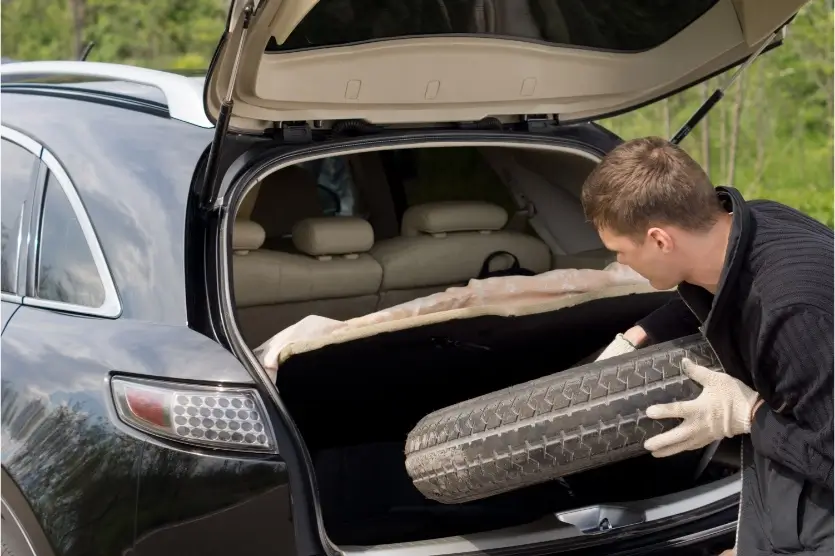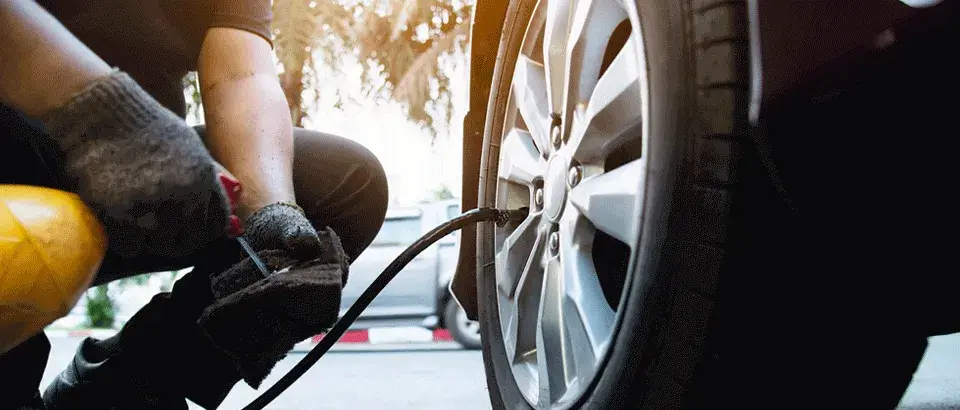Car tyres are one of the most important and most overlooked parts of your vehicle. Tyres are what allow you and your vehicle to roll down the road. The main function of any vehicle’s tyres includes supporting that vehicle load, transmitting traction and braking forces to the road surface, absorbing road shocks, and changing and maintaining the direction of travel. Flat tyres are a very common tyre repair issue, and most car owners deal with them at least once, maybe even more.
When it comes to your car, a flat tyre can often extremely frustrating. Many of the car drivers do not know how to do car tyre repair and many of them don’t even have a spare tyre in the vehicle. To keep your vehicle in good condition for everyday driving, it is obvious that you should prevent a flat tyre.
Flat tyres are unpredictable, and they always seem to happen at the most inconvenient time. But, there are things you can do to reduce the frequency of having a flat tyre. By taking some preventions you can avoid potential injury caused by losing control of your car when the tyres go flat.
Here are some Things You Can do to Help Prevent the Risk of Flat Tyres:
1. Always Keep Tyres Inflated:
You should check your car tyre regularly, always keep the tyres inflated at the right pressure. If your vehicle has too much tyre pressure, it will not only make your vehicle more difficult to handle also, it can make your tyre wear much faster and more unevenly.
In case you don’t know the correct pressure for your tires, you can check out the vehicle manufacturer’s instructions.
2. Check for Uneven Wear:
Check tyre periodically ensures that wear is even across the tyre. Uneven tyre wear could be a sign of over or under-inflated tyres, an alignment problem, a suspension problem, and unbalanced wheels any of these problems can mean that your safety is at risk while you are driving.
To check the tyre wear you can use tyre tread depth indicators found within the tread grooves. Car tyres have a minimum tread depth of 1.6mm which is the legal tread limit for your vehicle. The tyre depth should never be below 1.6mm, if it goes below this then you will require to put on new tyres on your vehicle.
3. Check Your Spare Tyre:

Spare tyres are the most neglected safety device your car equipped with. It usually hides in your trunk or under the back of your vehicle. Check your spare tyre now and then to make sure it has no defects and has the required pressure.
The Spare tyre should be inspected, if you ignore the spare tyre until you need it, the tyre could be flat or might be in a non-working condition. That’s why checking the spare tyre ensures that the tyre will be ready to use if you need to drive on it.
4. Watch Your Driving Style:
Sometimes how you drive has a big impact on the health of your car tyres. Poor driving habits can make you visit tyre dealers frequently. Few driving habits such as
- Taking Turns Too Quickly: Taking the turns at speeds is not safe entirely, if it happens frequently it will wear down your car tyre by leaving rubber on the road.
- Stop Too Quickly: Always try to stop your car over plenty of distance so that it will not have adverse effects on your tyres and also keep your car safer.
- Carrying Heavy Loads: Driving with heavy loads increases the pressure inside the tyres and weakens the tyres. This can lead to tyre failure. In case you need to haul a heavy load daily then buying premium tyres that can handle the extra weight can be beneficial.
- Driving Over Road Debris: It is not uncommon to come across several unfriendly road obstacles such as potholes, steel plates, uneven seams, branches, gravel, glass, and more. These road hazards can jolt suspension and steering out of alignment, leading to tyre wear.
These are some unusual driving habits that contribute to tyre failure and internal damage that will open the doors to blowouts and costly car tyre puncture repair.
5. Make Sure the brakes are in Good Shape:
Check the brakes of your vehicle regularly, when a vehicle has poorly adjusted brakes, it leads to create uneven wear and tear on the wheels, brake wear can also contribute to your worn tyres. The rubber tends to wear down faster, increase the risk of exposed tread, and tire failure.
If your vehicle having worn-out brakes you’ll end up stopping much harder than you should have to with healthy brakes. The car tyres will take a hit each time you have to slam on your brakes. Hence, it is very important to take care of your car brakes so that the tyres and the brakes can work together smoothly.
Final Words:
If a driver experiences a flat tyre or loss of air pressure, they should slow the vehicle gradually and carefully pull off to the side of the road as soon as possible. Maintaining proper air pressure is an important factor in tyre safety and performance, driving on a flat tyre can cause internal structural damage to the tyre, which may lead to wheel damage and result in poor vehicle handling which leads to an accident.
Above mentioned are some ways that will help you to prevent a flat tyre. These preventions help your vehicle from costly damage and will not leave you with the need for a frequent car tyre puncture repair service.

